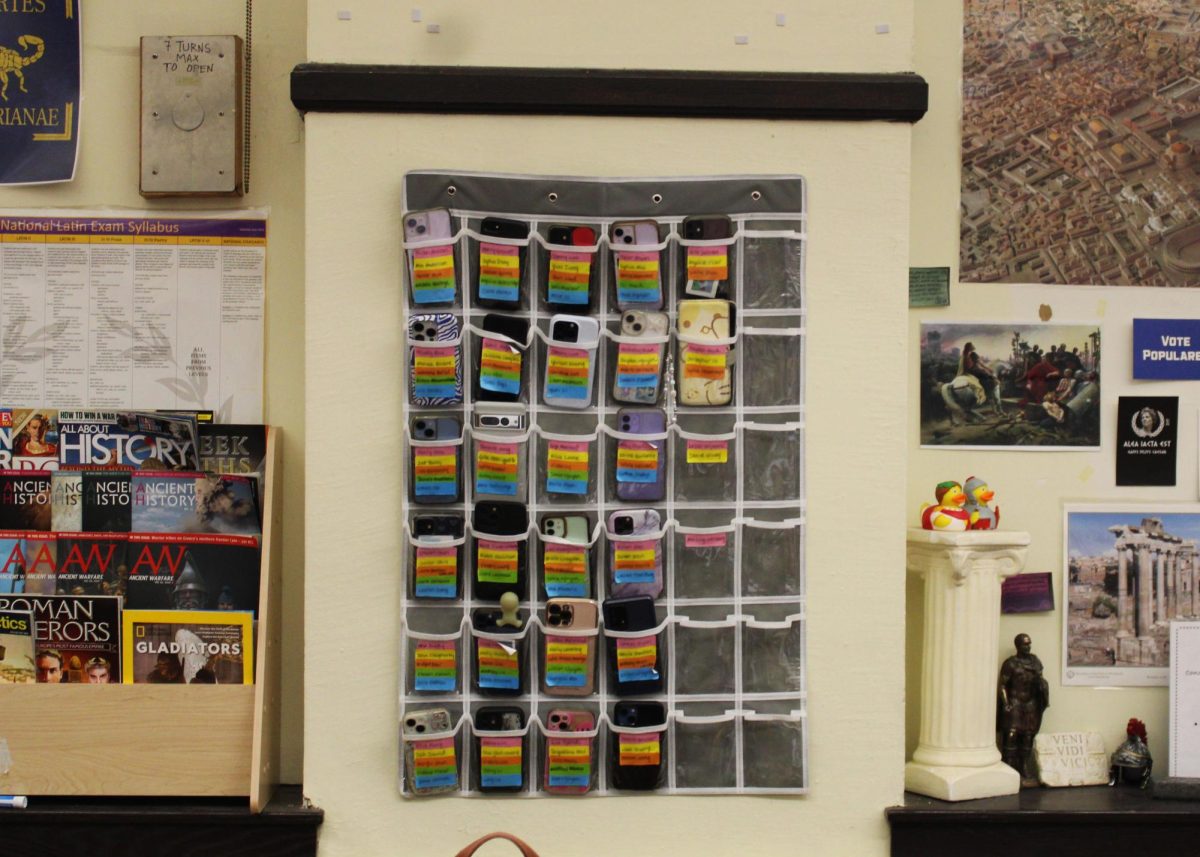Boston Latin School is concentrating on phone usage this year in response to growing concerns over excessive screen time.
Students are noticing that staff members have been more vigilant in imposing the phone policy lately. The truth, however, is that BLS has not changed its policy regarding phones in recent years. According to the BLS Student Handbook, the use of personal electronic devices before school is limited to the dining hall. During the school day, students are prohibited from using these devices unless a teacher or staff member gives them permission.
The School has always had a “no phone policy” ever since cell phones became common among teenagers, but the sudden shift in enforcement confused many students. Assistant Head of School Steven Chen comments, “I don’t think that the BLS approach has changed as much as the way that students rely on phones has changed, and as a result of that, it feels like we are cracking down more.”
The growing dependence on phones dates back to the late 2000s with the release of smart products by brands such as Apple and Samsung. Since then, young people have been attracted to its convenience and the age at which they get a phone has been decreasing.
To combat the urge to use phones during classes, some teachers have started to use “phone walls,” which are small pockets that students can put their phones into at the beginning of class so that they are away. Teachers create an incentive for students by offering extra credit in return for keeping their phones inside these pockets for the duration of that class.
“The temptation to check it, to look at it, to think about it, [and] to have your attention kind of pulled is very real. I think adults feel this too,” notes BLS history teacher Mr. Nicholas Fogel.
As a teacher who implemented a phone wall, Mr. Fogel explains that even though it only takes away the possibility of turning on a phone inside of the classroom, it also can reshape how students relate to their phones outside of it. He encourages readers of any age to check their own screen time data and be aware of other ways they can spend their time.
Other schools have acted as well. One of the most controversial rules that a small number of schools across the country have enforced involves the Yondr Pouch, a small bag that locks a student’s phone inside it until the end of the school day.
Concerning the possibility of using the Yondr Pouch at BLS, Chen argues that “[students] would get mixed messages if, on one hand, I’m telling you that you don’t have enough control to put your phone away, and at the same time, asking you to mature into functioning young adults and get ready for college.”
Sha’Rahn Pullum (II) shares her frustrations for the growing vigilance against phones, remarking that taking away personal devices or using a Yondr pouch limits students’ independence. She believes that students should be able to use their phones in school responsibly. Some students can benefit from the advantages that phones provide, such as listening to music to increase productivity.
Pullum states, “I believe there are pros and cons of phone usage and social media. It can be resourceful, a place of expression and a successful source of communication, but it can also be a place of comparison, distraction and social isolation.”
Categories:
Phone Policy Crackdown
By Trinity Ngo (II), Staff Writer
November 30, 2024
Teachers hang up phone walls for students to store their phones away during class. (Source: Sophia Knobel (III))
0







